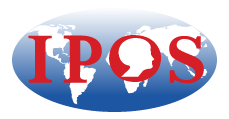Canada
de Souza Institutede Souza Institute has a partnership with Canadian Association of Psychosocial Oncology (CAPO) to provide online continuing education to support psychosocial oncology, including psychosocial care, courses in sexual health and palliative care. For more information, please visit us online: www.desouzainstitute.com Through de Souza Institute, health care professionals obtain the specialized skills to guide and help cancer patients throughout their journey (prevention, screening, diagnosis, treatment, survivorship and palliation). We use the latest information and best practices as well as cutting edge innovative learning. Any Time, Any Place – de Souza Institute courses are offered primarily online with the occasional course through Ontario Telemedicine Network or in-person. The Institute is focused on providing de Souza health care professionals with the advanced knowledge and expertise to handle every situation from managing a reaction to chemotherapy medication, to managing anxiety and fears, or to managing pain and other symptoms. Contact Victoria Wolno at [email protected] or call 1-844-758-6891. IPODE: Interprofessional Psychosocial Oncology Introduction to Theory and PracticeCOURSE DESCRIPTION: Psychosocial Oncology is a specialty area of cancer care that is concerned with the myriad of psychological, emotional, social and spiritual responses of persons affected by cancer. This web-based continuing education course provides an opportunity for practicing health professionals to explore common psychosocial issues that individuals and families experience when an adult family member is diagnosed with cancer. Primary emphases in the course include understanding the illness experience and assessing distress and coping from a family centered perspective. The course draws on a case-based, narrative format and provides opportunities to learn in small groups of interprofessional learners drawn from across Canada. The course design is web-based. A range of innovative learning resources have been developed specifically for this course, including case study narratives, video-taped interviews, and dramatizations of individual, family and interprofessional situations. Cases will provide opportunities for students to learn about diverse and marginalized communities. Online discussion boards will be maintained to explore course topics. The main mechanisms to facilitate learning in this course will entail eLearning and thirteen 1.0 hour weekly real time online conference sessions on. (“Live Classroom”) starting each January and September. For more information, please go to https://www.desouzainstitute.com/IPOI IPODE: Sexual Health & CancerCOURSE DESCRIPTION: The purpose of this 7-week course is to assist health professionals in cancer care to integrate human sexuality in their thinking and practice. Sexual concerns are one of the most common problems encountered in cancer care settings; yet they are the least likely to be discussed unless asked. The framework of this course encourages course participants to:
For more information, please go to https://portfolio.desouzainstitute.com/courseCodes/view/IPOD. Cancer Survivorship: Partnering with Patients to Improve Their ExperienceAddressing Empathy Fatigue, Managing Grief for Healthcare Professionals (AEFG)COURSE DESCRIPTION: This course focuses on teaching health care professionals how to recognize and assess the impact of grief and loss on their practice, and apply effective communication and coping mechanisms to reduce the risk of empathy fatigue. For more information, please go to: https://my.desouzainstitute.com/courseCodes/view/AEFG. Management of Depression and Anxiety in Cancer (MDAC)COURSE DESCRIPTION: This course promotes an evidence-based wholistic approach to care and management of depression and anxiety in individuals with cancer. The content and structure of the course is based on the Pan-Canadian Practice Guideline: Screening, Assessment and Management of Psychosocial Distress, Major Depression and Anxiety in Adults with Cancer. The following areas are covered in the modules:
For more information, please go to: https://portfolio.desouzainstitute.com/courseCodes/view/MDAC
Education in Palliative Care (EPC) Course SeriesThe Education in Palliative Care (EPC) course series will introduce you to providing person-centred palliative care for patients living with serious illness such as cancer, end-stage renal disease (ESRD), congestive heart failure (CHF), or chronic obstructive pulmonary disease (COPD). With palliative care support, patients report fewer symptoms, better quality of life, and greater satisfaction with their care. The Education in Palliative Care (EPC) course series consists of three courses that teach a comprehensive curriculum in palliative and end-of-life care:
For more information and to try a sample module, please go to https://www.desouzainstitute.com/epc/ |
